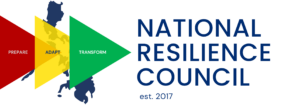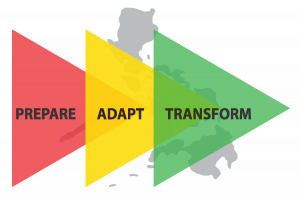Source: United Nations Office for Disaster Risk Reduction | Author: Denis McClean | Date: March 12, 2020

GENEVA, 12 March, 2020 – The UN Secretary-General’s Special Representative for Disaster Risk Reduction, Mami Mizutori, today acknowledged WHO’s declaration of a pandemic in relation to the global outbreak of the COVID19 virus which has claimed over 4,000 lives to date.
Ms. Mizutori who also heads the UN Office for Disaster Risk Reduction (UNDRR), urged national disaster management agencies to continue with the development of their preparedness and response capacities to include health emergencies as a top priority, alongside earthquakes, floods, storms and other natural hazards.
“Events such as the COVID19 pandemic, Ebola epidemics and Zika virus outbreaks underline how important it is to break down the silos in disaster prevention and management. We need to recognize the multiple ways in which such outbreaks can have a ripple effect across sectors of society and lead to the breakdown of systems that we take for granted, including health care, the provision of education, global supply chains, travel, trade and financial services.
“It is understandable that there is a strong disaster management focus on natural hazards. They are visible, and affect over 100 million people every year, but this machinery must also be ready for deployment in public health emergencies when the trigger is a virus like COVID19.
“This is a red-letter year for disaster risk reduction. UN Member States adopted the global plan to reduce disaster losses, the Sendai Framework for Disaster Risk Reduction on 18 March 2015 and committed to have national and local strategies for disaster risk reduction in place by this year. It is essential now that these strategies are revisited to ensure that they prioritize the management of biological hazards and resilient health systems.
“The Sendai Framework is a valuable instrument for ensuring better health outcomes in disasters. It emphasizes the need for resilient health systems and the integration of disaster risk management into health care provision at all levels.
“Its full implementation will help break down any silos that exist between disaster managers and health workers. It will also help to shift the focus from disaster response and management to preparedness, surveillance and disaster risk management in the health context.”
![]()


